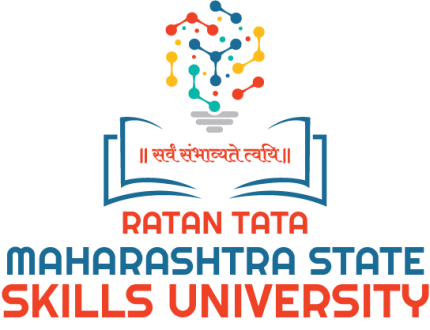CSE vs. CST vs. IT: Which Major Offers Better Job Opportunities?
August 28, 2024 2025-07-05 10:27CSE vs. CST vs. IT: Which Major Offers Better Job Opportunities?
Choosing a major in the rapidly evolving field of technology can be daunting. With so many specializations available, students often find themselves deciding between Computer Science and Engineering (CSE), Computer Science and Technology (CST), and Information Technology (IT). Each of these disciplines offers a unique blend of knowledge, skills, and career opportunities. But which one should you choose to maximize your job prospects? This blog will delve into the specifics of each major, comparing its core curriculum, job opportunities, and industry demand to help you make an informed decision.

Understanding the Majors: CSE, CST, and IT
Before diving into a comparison, it’s important to understand what each of these majors entails.
Computer Science and Engineering (CSE)
Computer Science and Engineering (CSE) is a broad discipline that encompasses both the software and hardware aspects of computing systems. The CSE curriculum is rooted in mathematics, science, and engineering principles, providing students with a deep understanding of both the theoretical and practical aspects of computing. Students learn to design, analyze, and evaluate system software, utility programs, and software hardware architectures. The program emphasizes hands-on laboratory work, where students gain practical experience in designing hardware and software solutions for various applications.
Core Subjects in CSE:
- Introduction to Computer Science
- Data Structures and Algorithms
- Programming Languages
- Software Engineering
- Operating Systems
- Databases
- Networks and Security
The CSE program is designed to produce graduates who are well-equipped to tackle complex computing problems. Students are trained to become computer professionals with varying responsibilities, such as designing and developing software, creating information technologies, and applying computing principles to new domains.
Career Opportunities in CSE:
- Software Engineer
- Systems Architect
- Computer Systems Analyst
- Research Scientist
- Hardware Engineer
Computer Science and Technology (CST)
Computer Science and Technology (CST) is a relatively new branch of engineering that combines the principles of physics, mathematics, and logical thinking with their applications in computing. CST focuses on advanced computing technologies and their applications in solving complex problems across various domains. The curriculum integrates digital and on-campus teaching, providing students with the right expertise to thrive in today’s technological world. The CST program is known for its emphasis on applied research in areas such as Artificial Intelligence, Biomedical Informatics, and High-Performance Computing.
Call Us For Any Query:- (+91) 86559 46646/47
Core Subjects in CST:
- Artificial Intelligence and Intelligent Systems
- Biomedical and Health Informatics
- Language Processing
- High-Performance Computing
- Programming and Software Design
- Networking and Hardware Systems
CST graduates are equipped to work in various industries, contributing to applied computing research efforts that address societal challenges. The program also emphasizes the practical application of theoretical knowledge through modern laboratories, preparing students for top-ranking positions in the industry.
Career Opportunities in CST:
- AI Engineer
- Biomedical Informatics Specialist
- High-Performance Computing Analyst
- Software Developer
- Network Engineer
Information Technology (IT)
Information Technology (IT) is a major that blends computer science, business, and communication skills. IT majors focus on how information and computing systems support business, research, and communication needs. The curriculum covers a wide range of topics, from computer hardware basics to the complex relationship between humans and computers. IT majors often specialize in areas such as web development, digital communications, or cybersecurity.
Core Subjects in IT:
- Introduction to IT Systems
- Database Management
- Web Development
- Digital Communications
- Cybersecurity
- Human-Computer Interaction
IT is a versatile major that opens doors to a variety of career paths. IT professionals are in high demand across industries due to the pervasive nature of technology in today’s world. The skills acquired in an IT program prepare graduates for roles that involve managing and securing information systems, developing software solutions, and supporting business operations through technology.
Career Opportunities in IT:
- IT Manager
- Web Developer
- Cybersecurity Analyst
- Database Administrator
- Network Administrator
Comparing Job Opportunities Across the Majors
Now that we’ve outlined the core aspects of each major, let’s compare their job opportunities and industry demand.
CSE: The Hardware and Software Powerhouse
CSE graduates are well-prepared for careers that involve both hardware and software. They have the technical skills to design complex systems, develop innovative software, and tackle challenging computing problems. The versatility of CSE graduates makes them attractive to employers in a wide range of industries, including technology, finance, healthcare, and government.
Pros:
- Versatile Skill Set: CSE graduates can work in various roles, from software engineering to hardware design.
- High Demand: The need for skilled software engineers, systems architects, and analysts continues to grow as technology advances.
- Competitive Salaries: CSE professionals often command high salaries, especially in roles that require specialized knowledge, such as AI or cybersecurity.
Cons:
- Intense Competition: The popularity of CSE means that graduates face stiff competition in the job market.
- Challenging Curriculum: The rigorous coursework in CSE can be demanding, requiring strong mathematical and engineering skills.
CST: The Cutting-Edge Technologist
CST graduates are at the forefront of advanced computing technologies. Their expertise in areas such as AI, high-performance computing, and biomedical informatics makes them valuable assets in industries that rely on cutting-edge technology. CST professionals are often involved in research and development, working on innovative solutions to complex problems.
Pros:
- Specialized Knowledge: CST graduates have in-depth knowledge of advanced computing technologies, making them experts in their field.
- Research Opportunities: The emphasis on applied research in CST opens doors to careers in academia, research institutions, and innovative tech companies.
- Growing Field: As technology continues to evolve, the demand for CST professionals is expected to grow, particularly in areas like AI and biomedical informatics.
Cons:
- Niche Market: CST graduates may find fewer job opportunities compared to more general disciplines like CSE or IT, particularly if they specialize in a narrow field.
- Requires Strong Research Skills: CST careers often involve research and development, which may not appeal to everyone.
IT: The Business and Communication Savvy
IT graduates are the bridge between technology and business. Their ability to manage and secure information systems, develop software solutions, and support business operations makes them indispensable in almost any industry. IT professionals are particularly sought after in sectors such as finance, healthcare, and telecommunications, where the management of data and communication systems is critical.
Pros:
- Versatility: IT graduates can pursue a wide range of careers, from web development to cybersecurity, and can easily transition between industries.
- High Demand: The need for IT professionals is ubiquitous, as almost every industry relies on technology.
- Focus on Communication: IT majors develop strong communication skills, making them effective in roles that require collaboration between technical and non-technical teams.
Cons:
- Less Technical Depth: Compared to CSE or CST, IT majors may not delve as deeply into the technical aspects of computing, which could limit opportunities in highly specialized technical roles.
- Broad Curriculum: The broad nature of the IT curriculum means that students may not gain as much expertise in a specific area compared to more focused programs.
Industry Demand and Job Market Trends
When choosing a major, it’s essential to consider the current job market trends and industry demand. Each of these majors—CSE, CST, and IT—has its strengths, but how do they fare in terms of job opportunities?
CSE: A Perennial Favorite
The demand for CSE graduates remains strong due to the ongoing need for software development, system design, and computing innovation. According to the U.S. Bureau of Labor Statistics, the employment of software developers is projected to grow 22% from 2020 to 2030, much faster than the average for all occupations. The demand for CSE professionals extends beyond traditional tech companies to industries such as finance, healthcare, and government, where computing solutions are increasingly vital.
CST: Growing with Technology
CST is a rapidly growing field, especially in areas such as AI, high-performance computing, and biomedical informatics. As more industries adopt advanced computing technologies, the demand for CST professionals is expected to rise. The growing focus on AI and machine learning in industries such as healthcare, finance, and manufacturing is particularly promising for CST graduates. However, the niche nature of CST may mean fewer job openings compared to more established fields like CSE.
IT: Always in Demand
IT professionals are in high demand across all industries due to the widespread reliance on technology. The U.S. Bureau of Labor Statistics projects that employment in IT occupations will grow 13% from 2020 to 2030, faster than the average for all occupations. IT jobs, such as cybersecurity analysts, network administrators, and IT managers, are critical to the smooth operation of businesses, making IT a stable and lucrative career choice.
Making the Right Choice: Factors to Consider
When deciding between CSE, CST, and IT, several factors should influence your decision, including your interests, career goals, and the job market. Here are some key considerations to keep in mind:
1. Personal Interests and Strengths
- CSE: If you enjoy both software and hardware and have strong mathematical and engineering skills, CSE may be the right fit for you.
- CST: If you’re passionate about advanced computing technologies and enjoy research and problem-solving, CST could be an excellent choice.
- IT: If you’re interested in the intersection of technology and business, and have strong communication skills, IT might be the best option.
2. Career Goals
- CSE: Ideal for those looking to work in software development, system design, or technical research roles.
- CST: Best suited for those interested in cutting-edge technologies, research, and development in specialized areas like AI or biomedical informatics.
- IT: A good choice for those seeking versatile careers in information management, cybersecurity, or tech support within various industries.
3. Job Market Demand
- CSE: Offers a broad range of job opportunities in multiple industries with competitive salaries.
- CST: Provides specialized opportunities with a focus on advanced technologies and research.
- IT: Ensures steady job opportunities across industries, with a focus on technology’s role in business and communication.
MSSU Skill Program In Computer Technology
The goal of our Computer Technology skill program is to provide students with a thorough understanding of functional operations, database design, Web development, programming, and coding. Students will get a greater grasp of hardware, software, networks, and databases with the aid of this curriculum. The information that the MSSU students acquire will enable them to research, evaluate, and design solutions to issues, develop programs, and come up with novel ideas for businesses and organizations.
MSSU Skill Program In Information Technology
Our Information Technology skill program gives students the tools they need to become proficient computer users, communicate technical concepts to non-technical people, design a plan for integrating hardware and software into a particular setting, and behave morally and professionally. Students who complete the program will be able to write code in higher-level languages with proficiency and work well with customers and other team members to analyze, define, design, create test, and document software that meets client needs.
Conclusion: Which Major Should You Choose?
Ultimately, the best major for job opportunities depends on your interests and career aspirations. CSE is a strong contender if you’re looking for a broad, versatile education with numerous career paths. For those drawn to cutting-edge technologies and research, CST offers exciting prospects. And if you’re interested in the business side of technology, IT provides a stable and lucrative career path. Consider your strengths, passions, and current job market trends when deciding, and you’ll be well on your way to a successful career in the technology industry.
Frequently Asked Questions
What’s the main difference between CSE, CST, and IT majors?
Answer: CSE (Computer Science and Engineering) gives you a solid foundation in both software and hardware. CST (Computer Science and Technology) focuses more on advanced tech like AI and research-based projects. IT (Information Technology) is about applying technology to support businesses, emphasizing skills like web development and cybersecurity.
Which major should I choose if I’m passionate about cutting-edge technologies like AI?
Answer: If you’re interested in cutting-edge tech and research, CST (Computer Science and Technology) might be the best fit. It dives deep into areas like Artificial Intelligence, high-performance computing, and other advanced technologies.
Is CSE too challenging if I’m not strong in math and engineering?
Answer: CSE can be demanding, especially with its focus on mathematics and engineering principles. However, if you enjoy problem-solving and are willing to put in the effort, it offers a broad range of career opportunities.
Will an IT major limit my job options to just business-related roles?
Answer: Not at all! While IT focuses on the application of technology in business, it also covers areas like cybersecurity, web development, and network management. IT graduates are versatile and can work in various industries, not just business.
How do job opportunities compare between CSE, CST, and IT majors?
Answer: CSE graduates generally have a wide range of job opportunities, including software engineering and systems design. CST offers specialized roles, especially in cutting-edge tech fields like AI. IT graduates are in high demand across many industries, as almost every business relies on technology. Your career goals and interests should guide your choice.



